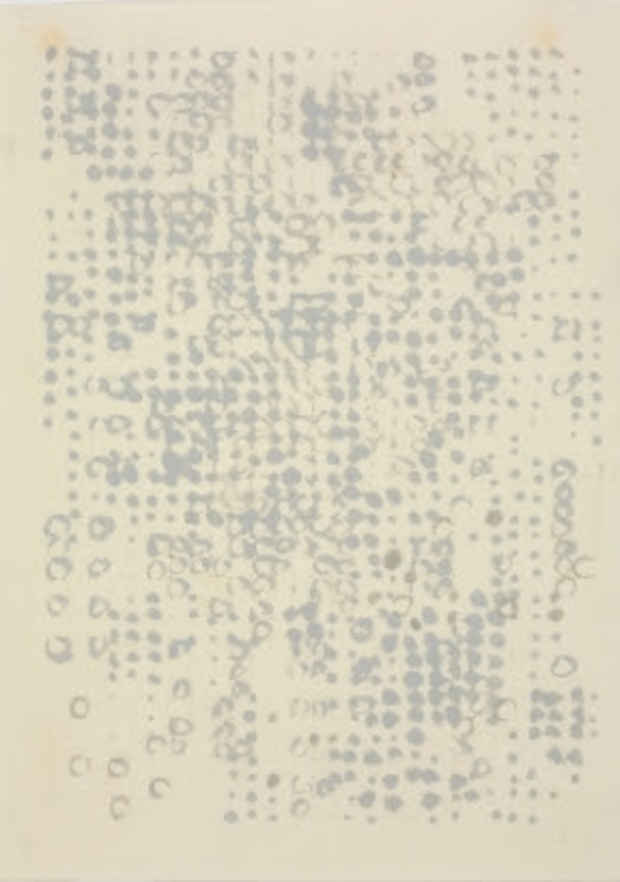Charlotte Posenenske “Early Works”
Peter Freeman

This event has ended.
One of the most influential artists of her generation, Posenenske is best known for her minimalist and conceptual sculptural works, based on industrial manufacturing and mass-production. However, before turning to sculpture in the mid 1960s, she was working primarily on paper, using it as a space for experimentation as she worked towards simplification, repetition, and mechanization. Her later sculpture ultimately questioned the importance of authorship, and in her early works on paper it is clear that it is an idea with which she was occupied from the beginning, playing with ways to eliminate the subjectivity of her hand.
One group of works on view are her “Landschaft” [Landscapes] for which she often worked out-of-doors, distilling natural elements into gesture and essential marks, paring them down to near abstraction while retaining a pictorial organization. She also was making lively, highly gestural works on paper and cardboard, the apparent speed in which they were made belied by the elegant, precise lines of which they are composed. However, she was elsewhere eliminating gesture, moving towards mechanization. That is evident in her “Spachtelarbeit” [Palette-knife Works] in which she used that tool to avoid the hand-drawn, subjective traces of a brush stroke, and in her “Rasterbild” [Grids], in which various types of marks were rapidly repeated, laid out in skewed lines. In these works she was exploring how automated her hand could be made to act.
Posenenske’s work culminated in sculptural prototypes (1967-68) consisting of intentionally reductive elements based on industrial principles of geometry, modularity, and standardization. They were unsigned and manufactured in unlimited numbers, their production and distribution left up to the will of the recipient or consumer. The conflicts of authorship became a constant occupation in Posenenske’s oeuvre and can be traced from the early works to the publication of her Manifesto in 1968, by which she ended career as an artist, claiming that art could not have a sufficient political impact.
Media
Schedule
from April 17, 2014 to May 31, 2014
Opening Reception on 2014-04-17 from 18:00 to 20:00